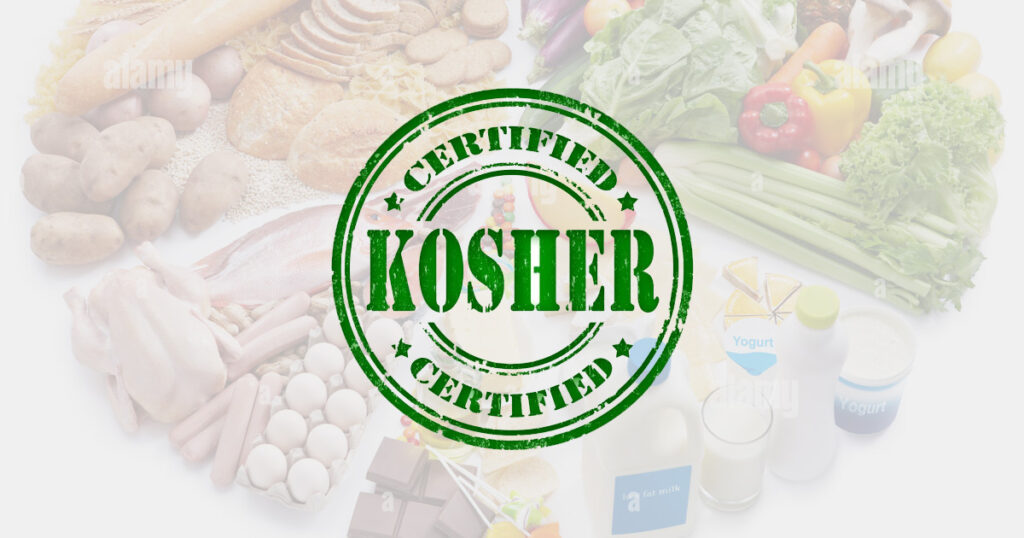The kosher certification landscape in India is rapidly evolving, reflecting not only the changing dietary preferences of consumers but also the global demand for kosher products. As we approach 2024, it is essential to explore the trends and predictions shaping the future of kosher certification in India. This article delves into significant shifts in consumer behavior, regulatory changes, and technological advancements that will define kosher certification in the coming years.
Understanding Kosher Certification
Kosher certification is a process through which food products are verified as permissible according to Jewish dietary laws. The demand for kosher-certified products has surged in India, driven by increasing awareness of dietary restrictions among diverse communities. This trend signifies a shift towards inclusivity in the food industry, catering not only to the Jewish population but also to health-conscious consumers seeking higher quality and ethically sourced food.
Rising Demand for Kosher Products
One of the most significant trends influencing kosher certification in India is the rising demand for kosher products. As more consumers become aware of the health benefits associated with kosher foods—such as rigorous quality control and animal welfare standards—the market for these products is expected to grow substantially. According to recent studies, the Indian kosher food market is projected to expand at a compound annual growth rate (CAGR) of over 10% by 2024. This growth is driven by:
- Increased Awareness: Consumers are becoming more informed about dietary restrictions and ethical sourcing, leading to a higher demand for kosher-certified foods.
- Expansion of Distribution Channels: Retailers and e-commerce platforms are increasingly offering kosher products, making them more accessible to a broader audience.
- Culinary Trends: The popularity of international cuisine in India has sparked interest in kosher-certified ingredients, particularly among millennials and urban populations.
Technological Advancements in Certification Processes
As we look towards 2024, technological advancements are set to revolutionize the kosher certification process in India. The integration of technology will streamline operations, enhance transparency, and improve the overall efficiency of the certification system. Key advancements include:
- Blockchain Technology: Implementing blockchain can provide a secure and transparent way to track the sourcing and production of kosher products, ensuring compliance with certification standards. This technology will also foster consumer trust by allowing customers to trace the origins of their food.
- Mobile Applications: The development of mobile applications for kosher certification will facilitate easier access to information for consumers and businesses. These apps can provide real-time updates on certified products, making it simpler for consumers to make informed choices.
- Automation in Certification: The use of automation tools will streamline the inspection and auditing processes, reducing the time and resources required for certification. This efficiency will enable certifying agencies to respond more rapidly to market demands.
Regulatory Changes and Their Impact
The regulatory environment surrounding kosher certification is also expected to evolve significantly in 2024. The Indian government has been increasingly supportive of the food industry, implementing policies to enhance food safety and quality standards. The impact of these changes on kosher certification includes:
- Standardization of Certification Processes: As the market grows, there is likely to be a push for standardized certification processes across various agencies. This will help eliminate confusion among consumers and create a more cohesive market for kosher products.
- Increased Collaboration: Collaborative efforts between the government, industry stakeholders, and certification bodies will promote a better understanding of kosher requirements. This collaboration can lead to more efficient certification processes and better compliance with dietary laws.
- Enhanced Consumer Protection: With growing consumer awareness, regulatory bodies are expected to implement stricter measures to ensure the authenticity of kosher certifications. This will help safeguard consumers against misleading claims and foster greater trust in certified products.
Emphasis on Health and Sustainability
As the world increasingly prioritizes health and sustainability, kosher certification in India is also shifting its focus towards these aspects. The future of kosher certification will likely emphasize:
- Health-Conscious Products: The demand for organic, gluten-free, and non-GMO kosher products is on the rise. Certification bodies may need to adapt their criteria to include these health-focused aspects, catering to a more health-conscious consumer base.
- Sustainable Practices: There is a growing emphasis on environmentally friendly practices within the food industry. Kosher certification agencies will likely begin incorporating sustainability criteria into their standards, ensuring that certified products are not only compliant with dietary laws but also environmentally responsible.
Challenges Ahead
Despite the promising trends, the kosher certification industry in India will face several challenges in 2024. These include:
- Misinformation: As the market for kosher products expands, misinformation regarding kosher practices and certification processes may arise. Educating consumers about the true nature of kosher certification will be essential to maintain trust in the industry.
- Competition: As demand increases, competition among kosher certification agencies may intensify. Ensuring consistent quality and maintaining the integrity of certification processes will be critical to standing out in a crowded market.
- Cultural Sensitivity: Navigating cultural sensitivities within India’s diverse population will require careful consideration. Certification agencies must be aware of the varying dietary practices and preferences across different communities to ensure inclusivity.
Conclusion
In conclusion, the future of kosher certification in India is poised for significant growth and transformation in 2024. With rising demand, technological advancements, regulatory changes, and a greater emphasis on health and sustainability, the kosher market is becoming increasingly dynamic. While challenges lie ahead, the potential for innovation and expansion in this sector is substantial. By staying informed and adaptable, stakeholders can navigate the evolving landscape of kosher certification and seize the opportunities it presents.
Read more : https://blookets.co/



